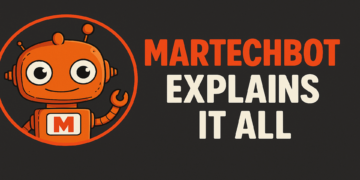By now, it would be difficult, if not impossible, to find someone old enough to use a digital device who hasn’t shopped online at some point over the past couple of years.
If you’ve ever purchased a recurring shipment of laundry detergent, bid on a vintage pair of sunglasses during an online auction, or even downloaded an e-book to your tablet or reader, then you’ve engaged in ecommerce.
Indeed, virtually anything can be bought and sold online — and virtually anyone can establish an online storefront to engage in ecommerce. But getting in on the action requires online retailers to be nimble and able to attract and retain customers by providing high-quality, seamless shopping experiences.
This article will explain broadly what ecommerce is, impactful trends shaping the industry, both today and into the future, and discuss the rise of mobile commerce (m-commerce), in which ecommerce companies allow customers to complete purchases via mobile apps rather than using links to drive them back to websites.
What is ecommerce?
In the simplest terms, ecommerce is the buying and selling of goods and services on the internet. Every type of transaction (B2B, B2C, C2C, etc.) that is completed online falls under the ecommerce umbrella. Ecommerce allows companies of all sizes and shapes, from small businesses to the largest corporations, to engage online and reach buyers anytime, anywhere.
While ecommerce traces its roots back to the 1970s, trading goods and services online as we know it today has been around since at least the mid-1990s (when the websites of two seminal companies, Amazon and Ebay, both launched). Close to 30 years later, worldwide retail ecommerce sales reached a staggering $5.2 trillion in 2021, a number that is on track to balloon another 56 percent over the next five years, according to research firm Statista. By 2027, Amazon alone will rake in more than $1 trillion in online sales.
There are several reasons why ecommerce only continues to grow. Convenience is one major driving factor. Because online consumers are unencumbered by the constraints of brick-and-mortar stores — the internet is open 24 hours a day, seven days a week — they are free to shop literally whenever they want. Tack on popular draws like free shipping, or the benefits and perks that come with online membership programs like Amazon Prime, and it’s not difficult to envision a future in which ecommerce dominates; by 2026, it will make up close to a third (31 percent) of all sales in the US.
Platform vs. marketplace
Broadly speaking, business owners looking to get into ecommerce can either sell their products on an online marketplace (think Etsy, Amazon, and Walmart) or via an ecommerce platform (Shopify, Squarespace). Ecommerce platforms are simply software applications that enable sellers and their consumers to interact at an online storefront. Marketplaces, on the other hand, are exactly what they sound like — a type of ecommerce site where many different sellers connect with buyers.
While there are pros and cons to both models, online marketplaces are considerably less risky because there are virtually no startup costs or website maintenance to worry about. On the other hand, there’s stiffer competition and it’s difficult to stand out. Platforms might cost more to start up and maintain, but business owners have direct insight into their customers’ behavior, making it easier to establish brand awareness and gain loyalty.
Dig deeper: How marketers on Amazon can still launch and grow brands
Trends impacting ecommerce
It’s impossible to ignore the impact that the COVID-19 pandemic had on ecommerce sales, which in the United States were some $870 billion in 2021, representing a 50.5% jump over 2019. Not only did the pandemic force shoppers to change their habits overnight (online grocery shopping exploded, for example), but it also forced businesses to up their ecommerce games, or even jump into the pool for the first time.
As the world adjusts to living with COVID and the disruptions it will continue to bring (supply chain problems, illnesses at distribution centers causing shipping delays, etc.), online businesses must be ready to adapt, as well as understand that consumers — even as they shop online in record numbers — are increasingly returning to brick-and-mortar stores.
That’s why industry-watchers say that the future of ecommerce is in the omnichannel sales approach, which provides customers with a seamless shopping experience, regardless of whether they’re shopping in store, online, via a mobile app, or by phone. In a practical sense, it means that shoppers experience seamless communication between channels. With the omnichannel approach, a customer, for example, can complete a purchase online, but can also call customer service to get return information on that same order.
Artificial intelligence (AI) and machine learning, unsurprisingly, have a huge role to play in the evolution of ecommerce. Harnessing data to understand what and when shoppers buy — and using it to personalize the buying experience and help make business and inventory decisions — is helping make ecommerce more efficient for bother buyers and sellers.
The rise of mobile and social commerce
Perhaps no trend impacting ecommerce is as prevalent as the rise of mobile, or m-commerce; by 2025, retail m-commerce sales — in which shoppers complete purchases via their smartphones or tablets using apps — are expected to amount to some $710 billion.
It’s a huge opportunity, but sellers have to be ready to take advantage of the growth. Mobile sites must be easy to use and help shoppers quickly find what they’re looking for. But another large challenge is in getting customers to complete their purchases; cart abandonment happens when payment forms are cumbersome, filled with clicks, or aren’t intuitive. Mobile payment options like Apple Pay, Android Pay, Amazon Pay, and others enable shoppers to buy with one click; Amazon also has the “Buy Now” button that bypasses its multi-step process.
Sellers must also understand the ongoing impact that social media has had on e-, and m-, commerce. Increasingly, customers want to browse and purchase items without ever leaving their social platform of choice. Instagram, for example, makes it easy for brands to connect to their customers, but creating content that not only stands out, but leads to a sale, is crucial. This competitive field is extremely crowded, so sellers have to take the time to actively engage with customers.
The future of ecommerce
Sophisticated, tech-savvy consumers will no doubt play the leading role in the continued evolution of ecommerce, demanding enhanced shopping experiences. For example, video shopping — in which brands create content that shows products in action — is gaining a growing foothold and may shake things up in 2023. Don’t discount the importance social/video platforms like TikTok will continue to have on huge swaths of the buying population.
Going beyond the use of traditional video, cutting-edge ecommerce retailers are starting to explore the possibilities of virtual reality, offering potential customers the opportunity to experience a product before buying.
The buy-now-pay-later phenomenon is also gaining major traction. Customers are enticed by the ability to split purchases large or small into interest-free payments using systems like Klarna, Afterpay, and others.
Payment flexibility will play a role in helping offset the impact inflation has had on consumers’ purchasing behavior. But sellers are also well-advised to offer generous return policies; consumers are more likely make repeat purchases from sellers with easy returns. Flexible fulfillment (buy online, pickup in store) is similarly another growing trend to watch. Though it’s not necessarily new, the name of the game for customers is convenience, so sellers must continue to find ways to increase the ease factor.
Finally, ecommerce sellers need to be ready to cater to the new generations of shoppers entering the marketplace. Their buying power, coupled with their extreme tech-savviness, makes them a formidable challenge — and opportunity — for retailers.
Resources for learning more about ecommerce
We’ve got a wealth of resources to help you learn more about ecommerce, from how to grow your e-commerce business to tracking how inventory challenges pressure both in-store and online sales.
From around the web:
Opinions expressed in this article are those of the guest author and not necessarily MarTech. Staff authors are listed here.
Read the full article here









